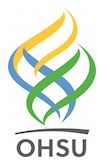Traditional Electives
Diversify your clinical experiences and travel the world
Traditional Electives
A list of in-person elective programs for International Medical Students
For eligibility and application use this tool

Exchange Clerkship Program
Learn more about these electives here

Visiting International Students Program
Learn more about these electives here
*Only allow accredited institutes
Learn more about this elective here

Case Western Reserve-University Hospital
Learn more about these electives here
*Contact the med student office ([email protected]) if your school is not LCME or COCA accredited

Visiting International Student Program
Learn more about these opportunities here

Learn more about these electives here

Internal Medicine
Nutrition Metabolism and Human Health
Survey Course of the History of Medicine
Family Medicine
Long-Form Literature and the Practice of Medicine
International Health
Field Experience in One Health and Outbreak Investigation
Exploring the COVID-19 Pandemic
Dermatology
Skin Diseases Depicted in Film
Skin Diseases in Modern World Literature
Skin Diseases in Novels and Films
OB/GYN
Interpersonal Violence: Practices to Help Patients Improve Health Outcomes
Pathology
Fundamentals of Molecular Genetics and Genomics
Curating a medical exhibit at UTMB
Psychiatry and Behavioral Science
Diagnosing Simply through Movies---Learning the DSM5—through popular films and TV
Pediatrics
Foundations in Patient Safety and Health Care Quality
Radiology
Integrative
Learn more about these electives here
At a Glance
Growing Need and Importance of Virtual Experiences*
500%+
Zoom Visits
200%+
Telehealth Demand
100%+
Telehealth Initiatives
10%+
Telehealth Courses
*Numbers are an approximate estimate from various sources
What Physicians and Medical Students Say About Virtual Electives
Engaging with the media reaps educational benefits for physicians as well. I do not plan to become a health journalist, but I am struck by how much I learned during my media immersion. I have a greater understanding of how health news is made, and I am more credible when I counsel patients who have questions about health topics they read online or saw on TV.
As a future forensic pathologist, I will be responsible for rendering diagnoses to clinical colleagues. I will also be called upon to speak with deceased patients’ family members, knowing that the information I provide may help them heal. That’s why honing my communication skills so that I can share important medical information in a manner that everyone can easily comprehend is so important to me.



